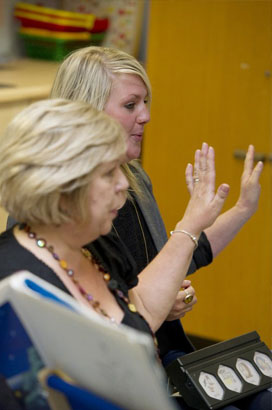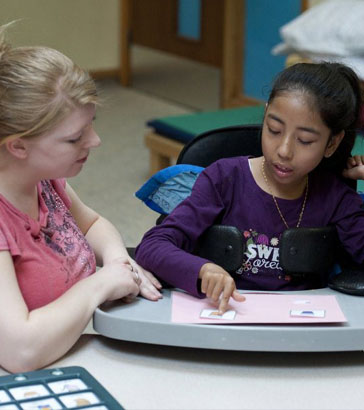
Teachers and TAs work together in schools. At best this collaboration adds enormously to the experience and achievement of children. Achieving this 'added value' makes considerable demands on building a close professional relationship. With their assistants, teachers provide key delivery of support.
Teachers rely on TAs to help deliver the front line service while TAs rely on teachers to guide them in their role. Teachers supervise their assistants based on their own expertise in training and experience in pedagogy.
Between 1997 and 2003 there was a 99% increase in teaching assistants in schools in England (Blatchford et al, 2009).
TAs are paraprofessionals, however managers need to work hard to make sure that the expertise of TAs is used to best effect (see Blatchford, 2011).
Advantages of TAs range from improving pupil participation, keeping a calm and purposeful environment and keeping pupils on task. However, the demands of the role can be very challenging.
TAs vary in their educational background. Many are considering teaching as a profession. Some TAs are highly qualified in fields outside education and are looking for a change in career which is satisfying and purposeful. There are various pathways to train as teachers which TAs often decide to follow.
Children with an SSEN are sometimes allocated a TA. A TA can spend a year or more supporting a particular child, especially if the needs are complex. This relationship helps a child to develop confidence and skills and enjoy working with others.
Children sometimes work in one-to-one lessons, and at other times are part of a group. Such groups benefit from the presence of a TA.
Other TAs may be allocated a class to assist. Planning is required alongside the teacher before the children arrive. Responsibilities vary according to the help required by the teacher. On occasion the teacher might let the TA supervise a class activity while he works with small groups or individuals.

Identify the contribution of TAs in your classroom. List the ways that the contribution of TAs could be enhanced in your classroom with respect to:
- Planning and Teaching
- Assessment and Recording
- Working with other professionals

Blatchford et al (2009) The impact of support staff in schools. Results from the Deployment and Impact of Support Staff project. (Strand 2 Wave 2), London: DCSF.
Blatchford, P., Bassett, P., Brown, P., Martin, C., Russell, A. and Webster, P. (2011) The impact of support staff on pupils' 'positive approaches to learning' and their academic progress, British Educational Research Journal 37, (3), 443-464.